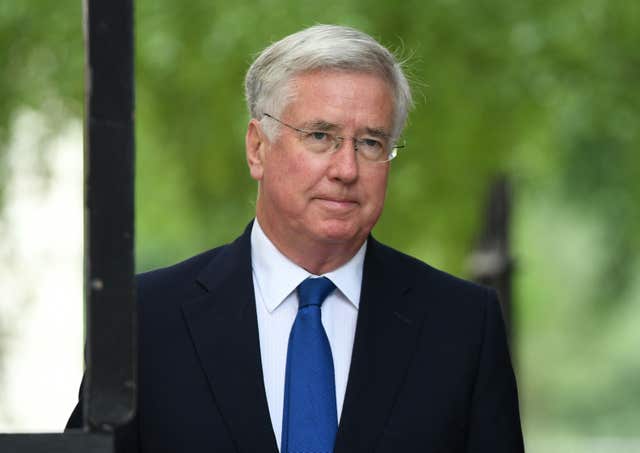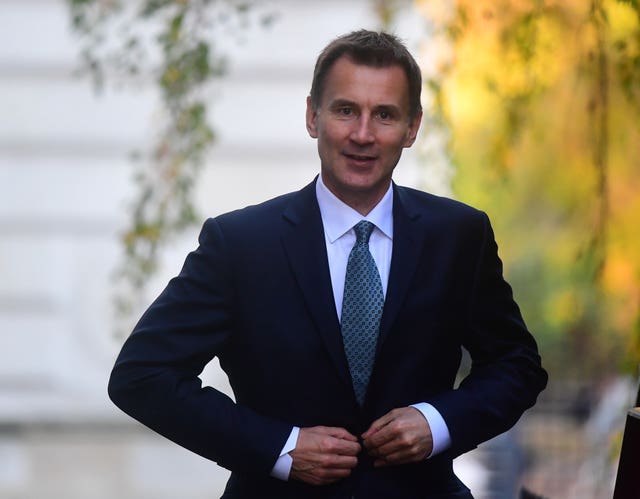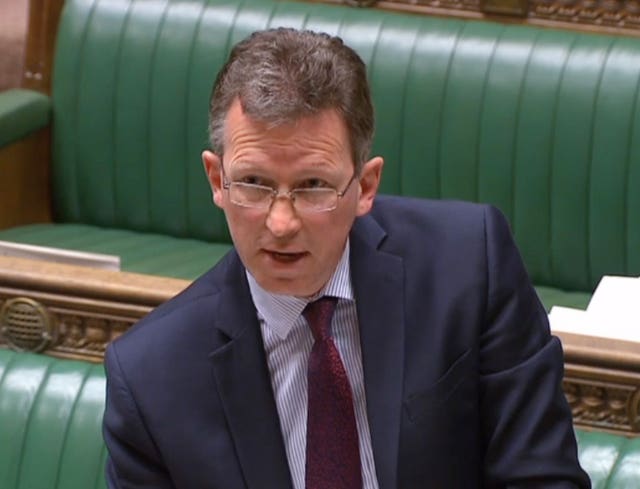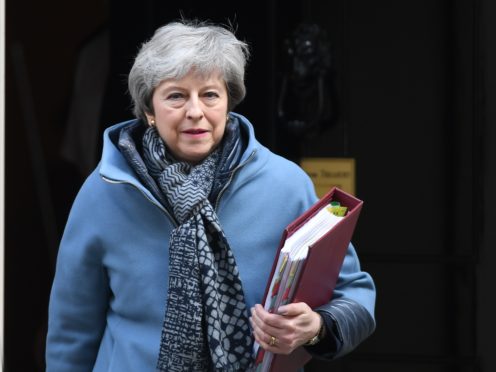Theresa May is facing demands for a full police inquiry into the leak of secret discussions by the UK’s top national security body.
Furious MPs denounced the unprecedented disclosures following Tuesday’s meeting of the National Security Council (NSC) as “completely shocking” and called for action to find the perpetrator.
Downing Street refused to say whether a leak inquiry was already under way, but insisted the Prime Minister regarded the protection of information concerning national security as a “matter of the highest importance”.
Two Cabinet ministers – Defence Secretary Gavin Williamson and Foreign Secretary Jeremy Hunt – publicly denied that they were responsible.
However, former defence secretary Sir Michael Fallon said a Whitehall leak inquiry by civil servants was insufficient and that only a proper Scotland Yard investigation could get to the truth.

He said Cabinet ministers attending the meeting should have their mobile phones checked to see if they contacted journalists afterwards, and if anyone was found to be responsible they should be prosecuted under the Official Secrets Act.
Former minister Andrew Mitchell said Mrs May should order MI5 to conduct a full investigation, which could include interviewing Cabinet ministers if necessary.
Mr Mitchell told BBC2’s Newsnight: “If I was advising her, I would say to her that you have no option really Prime Minister, but to call in the security service. And the Cabinet Secretary – who is also by happy coincidence the national security adviser – should conduct an inquiry and find out the source of this leak.”
The anger among MPs reflected concerns that the leak from the NSC – where senior ministers are briefed by intelligence chiefs from MI5, MI6 and GCHQ – could damage intelligence-sharing relations with key allies.
It followed a report in The Daily Telegraph that Mrs May – who chaired the meeting – had overridden the objections of key ministers to give the green light for Chinese tech giant Huawei to participate in the UK’s 5G communications network.
Five ministers – Mr Hunt, Mr Williamson, Home Secretary Sajid Javid, International Development Secretary Penny Mordaunt and International Trade Secretary Liam Fox – were reported as having expressed concern.

David Lidington, the Cabinet Office Minister and Mrs May’s de facto deputy, Chancellor Philip Hammond, Business Secretary Greg Clark and Attorney General Geoffrey Cox also sit on the NSC, while it is thought other ministers attend when it is relevant to do so.
MPs immediately linked the disclosure to the manoeuvrings around the Tory leadership, with whoever was responsible seeking to burnish their credentials as being “tough on China”.
At a lunch for Westminster journalists, Mr Hunt flatly denied that it was him.
“I think it is utterly appalling that that should happen,” he said.
“I have never leaked confidential Cabinet discussions and I never will.”
In a statement, Mr Williamson said neither he nor any of his team had “divulged information from the National Security Council”.
Mr Javid, visiting a police training college in Kent, said it was “completely unacceptable” for any minister to release sensitive information and that it should “absolutely be looked at.”
Sir Michael said it was now essential that National Security Adviser Sir Mark Sedwill referred the matter to the Metropolitan Police.
“That would involve a proper Scotland Yard investigation of all those who attended the meetings, all those who have mobile phones – whether they contacted journalists after meeting,” he told the BBC.
“Ministers are subject to the Official Secrets Act just like anybody else. It is an offence to divulge secret information from the most secret of all government bodies, which is the National Security Council. It has got to be stopped.
“It is extraordinary to think that a minister can leak details of the National Security Council and then think they can get away with it. That is why a police inquiry now is so important.”
Calls for a inquiry were backed by former national security adviser Lord Ricketts, who said it was the first major leak from the NSC since its inception in 2010.
He suggested investigators from the Security Service, MI5, could be brought in “to make the culprit feel very uncomfortable”.

In the Commons, Labour also demanded an inquiry with shadow Cabinet Office minister Jo Platt saying it would be “truly shocking” if the leak was to gain advantage in a Tory leadership contest.
Culture Secretary Jeremy Wright told MPs a criminal investigation had not been ruled out, saying it was essential the intelligence agencies had confidence that advice given to ministers would remain private.
“If they do not feel that, they will not give us that advice and Government will be worse as a result,” he said.
He repeated the Government’s assertion that no final decision has been made on whether Huawei should be allowed to bid for contracts in the 5G network.
Meanwhile, the chairman of the Commons Foreign Affairs Committee, Tom Tugendhat, wrote to Sir Mark to say he had been contacted by “some of our closest allies and partners” expressing their concerns at the leak.
“This is particularly true for those with whom we share the closest intelligence networks,” he said.
Dominic Grieve, the chairman of the Parliamentary Intelligence and Security Committee which oversees the work of the agencies, said the leak was “deeply worrying”.
“The principle that what is discussed at the NSC is kept totally confidential is really important,” he said.
